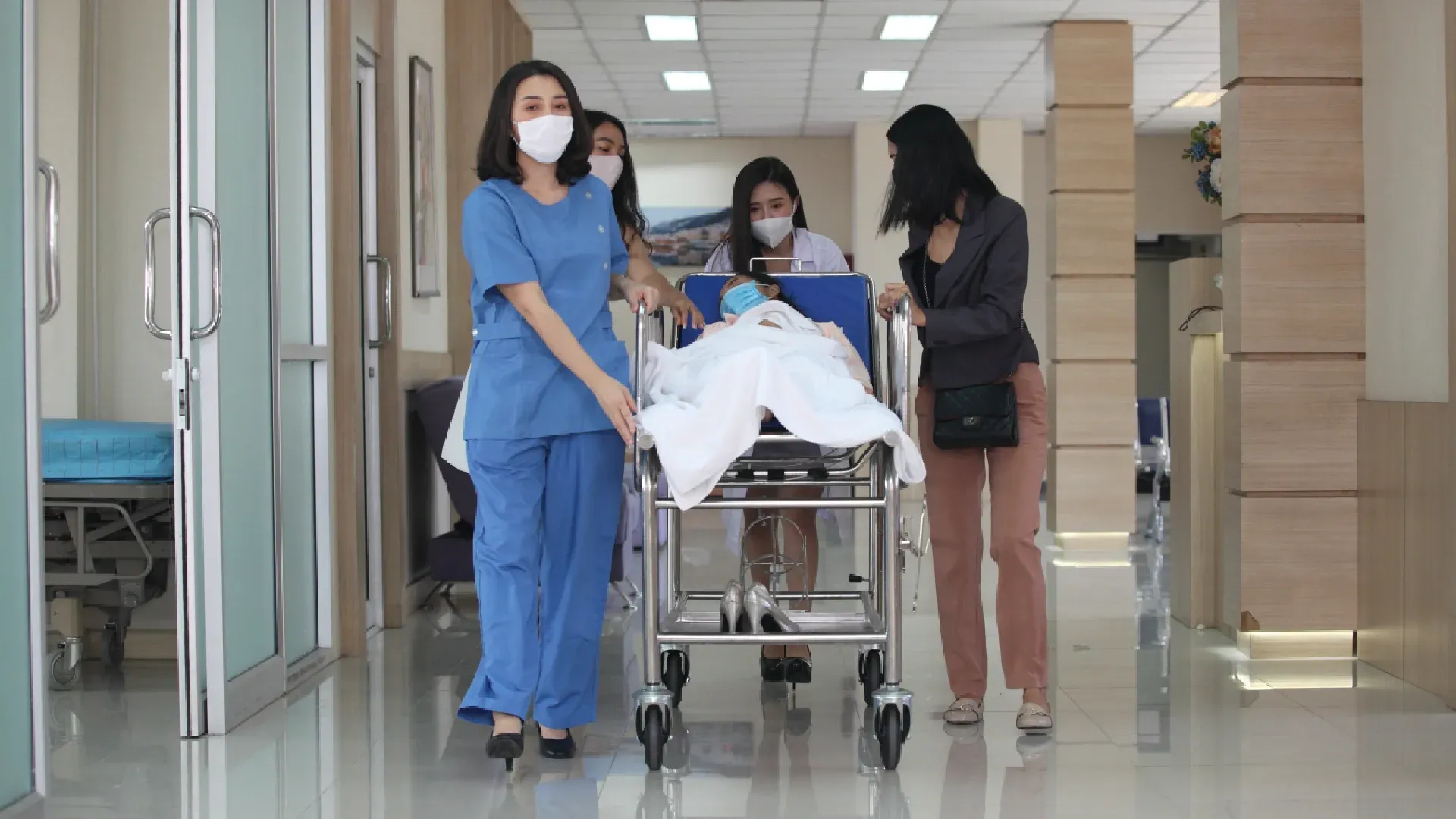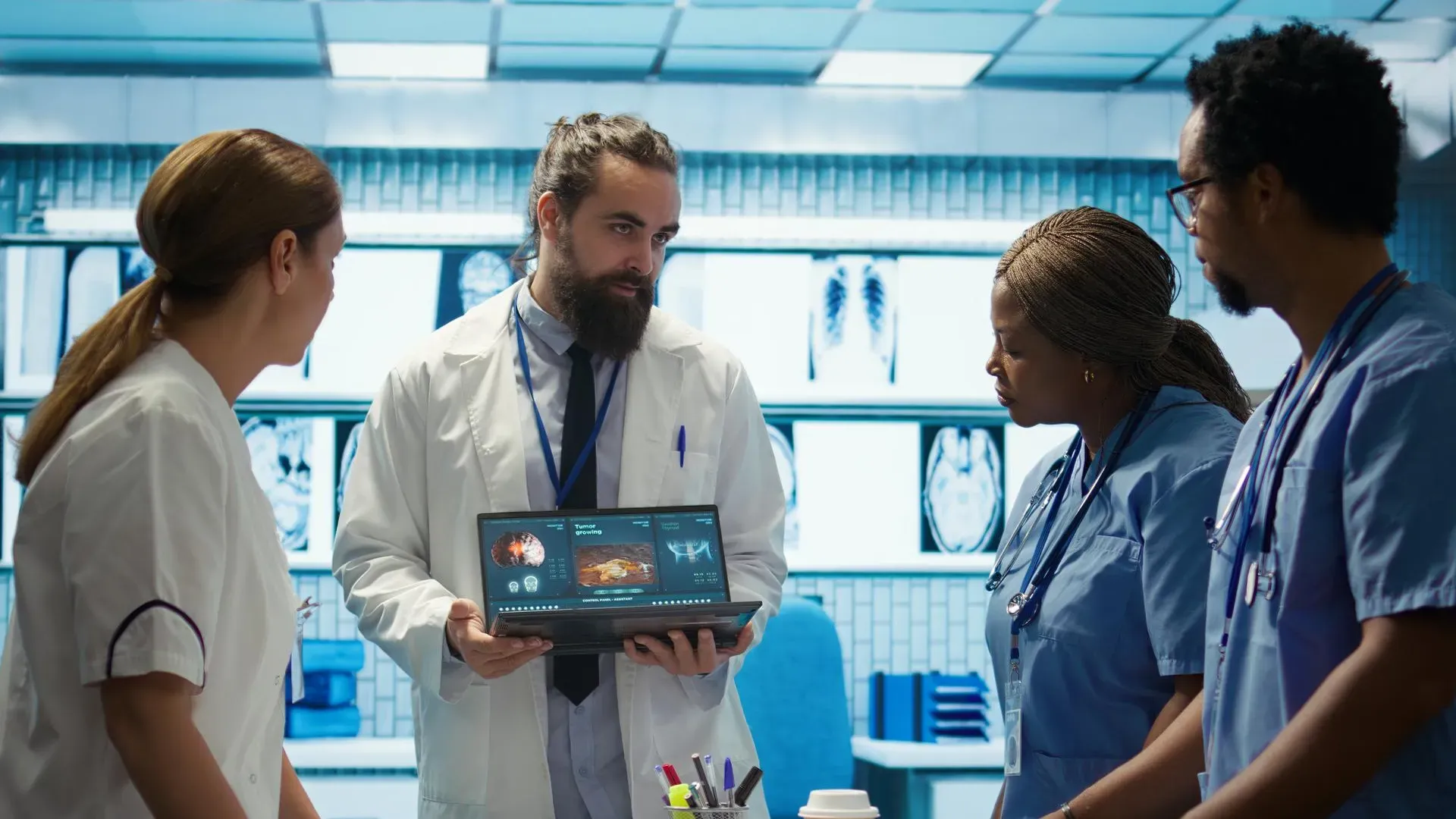How to Ensure Patient Care Quality with Temporary Nursing Staff
In the dynamic area of healthcare, ensuring patient care quality with temporary nursing staff presents unique challenges yet offers substantial opportunities for enhancing patient safety in nursing. The fluctuation in demand for healthcare services often necessitates the integration of temporary nurses to maintain staffing levels without compromising the quality of care. This necessity underscores the importance of a rigorous approach to safeguarding patient safety and upholding the duty of care in healthcare environments. By addressing the specifics of how temporary staffing influences patient care quality, healthcare providers can navigate these challenges effectively.
This article delves into critical strategies for integrating temporary nursing staff without sacrificing patient care quality. It begins by assessing qualifications and experience, crucial for ensuring that temporary nurses possess the requisite skills and knowledge. Providing comprehensive orientation and training is another pivotal step, equipping temporary staff with the necessary information about policies, procedures, and the cultural aspects of their new working environment. Furthermore, the piece explores the significance of implementing effective communication channels to facilitate seamless integration and collaboration. Lastly, it highlights the importance of monitoring performance and providing constructive feedback to temporary staff, ensuring continuous improvement in the delivery of quality care nursing. Through these focused measures, healthcare providers can effectively maintain high standards of patient care quality with the strategic use of temporary nursing staff.
Assessing Qualifications and Experience
Reviewing Credentials
To ensure high standards of patient care quality, reviewing the credentials of temporary nursing staff is crucial. This involves verifying their qualifications, certifications, and registration with relevant nursing boards. The process ensures that nurses possess the necessary skills and knowledge to provide quality care. Additionally, assessing their professional experience, especially in similar healthcare settings, is vital for determining their capability to handle the demands of the position.
Conducting Interviews
Interviews play a key role in assessing potential temporary nursing staff. They provide an opportunity to evaluate the candidates' communication skills, professionalism, and ability to interact effectively with patients and team members. During interviews, it's essential to create a focused environment, free from distractions, to accurately gauge the candidate's suitability for the role. Emphasising open and honest communication allows for a deeper understanding of the candidate's experience and their approach to patient care.
Evaluating Past Performance
Evaluating the past performance of temporary nursing staff is integral to understanding their ability to maintain high standards of care. This assessment can include reviewing feedback from previous employers, analysing their involvement in patient care outcomes, and their adherence to safety protocols. Understanding their professional conduct in past roles provides insights into their reliability and dedication to quality care nursing, ensuring they are a valuable addition to the healthcare team.
Providing Thorough Orientation and Training
Orientation Program
The orientation program is fundamental in preparing temporary nursing staff for their roles, ensuring they are competent and confident in their duties. This program should be comprehensive, incorporating both theoretical knowledge and practical skills. It is enhanced by experienced clinical instructors who are well-prepared and effective in delivering the necessary training. Feedback from participants indicates that the most impactful programs include interactive and engaging presentations, which help maintain attention and enhance learning.
Continuous Training Modules
Continuous professional development (CPD) is crucial for maintaining high standards of care. Training modules should be regularly updated to reflect the latest medical practices and technologies. These modules are vital for upskilling nurses, ensuring their knowledge remains relevant in a rapidly evolving healthcare environment. Engaging in CPD helps nurses identify knowledge gaps and enhances their professional growth, ultimately leading to improved patient care quality.
On-the-Job Support
On-the-job support is essential for integrating new knowledge into practice. This support includes mentoring from experienced staff, which helps reinforce new skills and fosters a supportive work environment. Regular staff meetings and feedback sessions are also beneficial, allowing for the exchange of ideas and continuous improvement. This supportive culture encourages nurses to take initiative and contribute to innovation in patient care, ensuring they feel valued and part of the team.
Implementing Effective Communication Channels
Regular Meetings
Regular meetings, both formal with a set agenda and informal for quick updates, play a crucial role in maintaining open lines of communication among temporary nursing staff. These meetings allow for the exchange of vital information and decision-making processes that directly impact patient care quality. They also foster a sense of support and belonging among staff, enhancing job performance and overall well-being.
Clear Reporting Lines
Establishing clear reporting lines is essential for effective communication within healthcare settings. This structure ensures that all members of the nursing staff know whom to report to regarding patient care issues, safety concerns, and other critical matters. Clear reporting lines help in maintaining a structured approach to handling issues and enable quick resolution, thereby ensuring continuous delivery of quality care.
Feedback Mechanisms
Feedback mechanisms are integral to fostering a culture of continuous improvement. Regular feedback sessions provide nursing staff with insights into their performance and areas for improvement. These mechanisms should be constructive and include both positive reinforcements and areas where staff can enhance their skills. Feedback also serves as a tool for professional development, helping staff align their practices with the overall goals of patient safety and care quality.
Monitoring Performance and Providing Feedback
Performance Metrics
To maintain high standards of patient care quality, healthcare organisations should utilise performance metrics to assess the efficiency and effectiveness of locum nurses. Key metrics include clinical competence, patient outcomes, timeliness and responsiveness, adaptability and integration, compliance with standards, and professional development. These metrics provide a quantitative measure of service quality and help in monitoring and improving the contributions of temporary staff.
Regular Evaluations
Healthcare organisations should conduct regular performance reviews using standardised evaluation tools to ensure consistency and objectivity. These evaluations should include feedback from multiple sources such as patients, permanent staff, and supervisors, offering a comprehensive view of a nurse's performance. Regularly scheduled formal evaluations and informal check-ins help track progress and identify areas for improvement, ensuring that locum nurses meet the expected standards of care.
Constructive Feedback
Constructive feedback is crucial for professional growth and enhancing patient care quality. It should be timely, specific, and delivered in a supportive manner. Organisations should establish clear communication of expectations at the start of assignments and provide ongoing training and support. Feedback should focus on specific actions and behaviours, rather than personal traits, and be followed by actionable advice for improvement. This approach not only helps in addressing any shortcomings but also reinforces good practices and professional development.
Conclusion
Throughout this article, we have explored the multifaceted approach required to integrate temporary nursing staff into healthcare environments without compromising the quality of patient care. From the initial steps of assessing qualifications and experience, conducting thorough orientations and training, to implementing effective communication strategies and monitoring performance with constructive feedback, we've underlined the pivotal elements that contribute towards sustaining high standards of care. These measures not only ensure that temporary nurses are prepared and supported in their roles but also reinforce the overall objective of maintaining patient safety and care quality in dynamic healthcare settings.
In reinforcing the significance of these strategies, we also acknowledge the broader implications of effectively managing temporary nursing staff on the stability and adaptability of healthcare services. The successful integration of temporary nurses plays a crucial role in navigating fluctuating demand for healthcare, enhancing patient outcomes, and fostering a culture of continuous improvement and professional development within healthcare organisations. As we move forward, the insights and strategies discussed herein offer a valuable framework for healthcare providers aiming to uphold excellence in patient care during times of change and uncertainty, demonstrating the critical role of temporary nursing staff in the continuity and quality of healthcare services.











